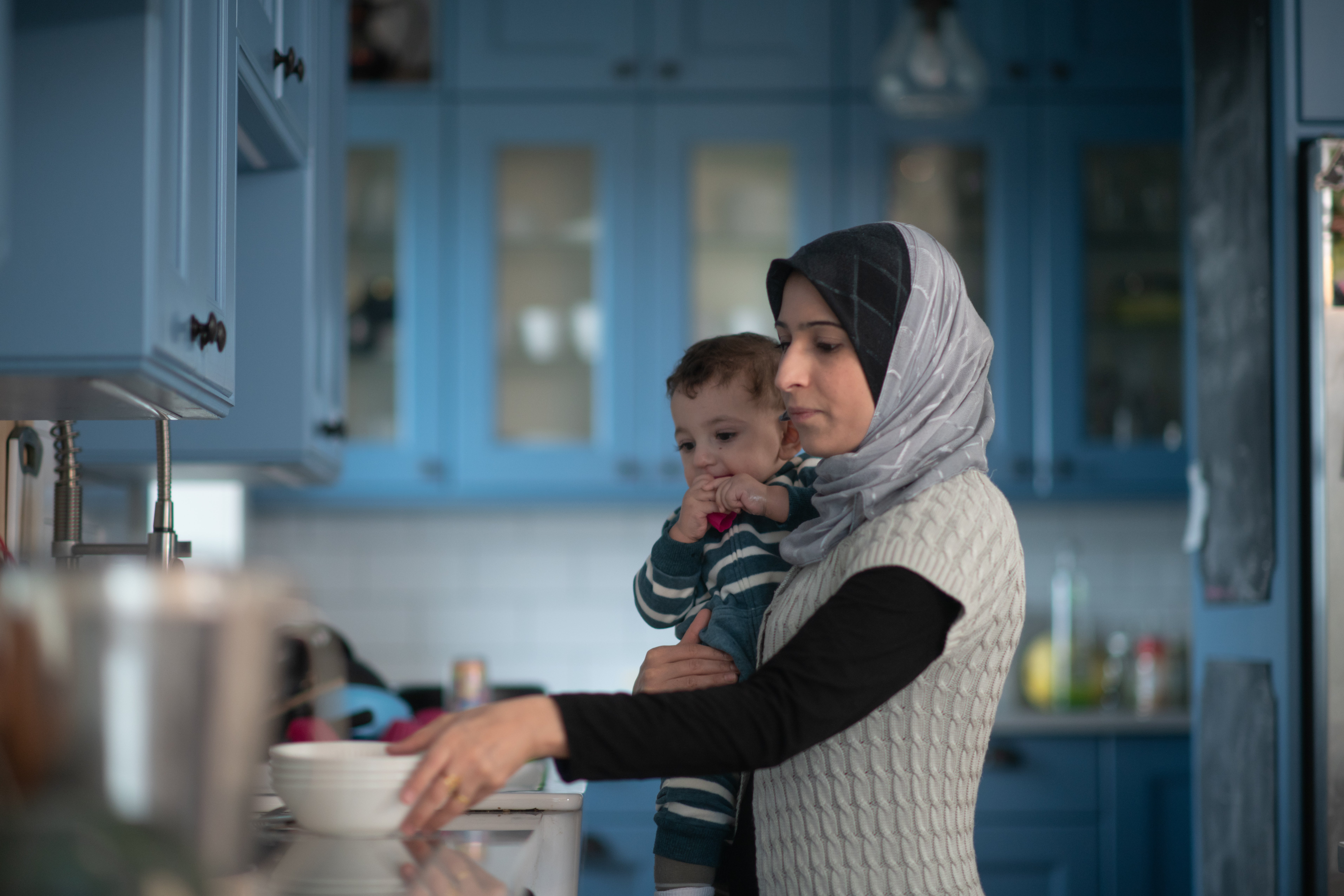Tears, tantrums, nightmare nappies: We need more honest portrayals of motherhood
Caring for a baby can feel so incredibly lonely, which is ironic, as a trip to the bathroom without an audience is now a luxury


Your support helps us to tell the story
From reproductive rights to climate change to Big Tech, The Independent is on the ground when the story is developing. Whether it's investigating the financials of Elon Musk's pro-Trump PAC or producing our latest documentary, 'The A Word', which shines a light on the American women fighting for reproductive rights, we know how important it is to parse out the facts from the messaging.
At such a critical moment in US history, we need reporters on the ground. Your donation allows us to keep sending journalists to speak to both sides of the story.
The Independent is trusted by Americans across the entire political spectrum. And unlike many other quality news outlets, we choose not to lock Americans out of our reporting and analysis with paywalls. We believe quality journalism should be available to everyone, paid for by those who can afford it.
Your support makes all the difference.So much of motherhood is depicted as big moments. A positive pregnancy test. Waters breaking in the fruit and vegetable aisle. That split second when all your hopes and dreams from the last nine months are suspended in the air as you wait for your baby’s first piercing cry. First birthdays and first teeth and first words. Bathtimes that resemble Dove adverts, where bubbles float around daintily as your lathered-up cherub splashes sweetly in the water.
But that’s not reality – or at least, not the whole picture. At least not for me. As I mark half a year of motherhood, I’m left feeling reflective (if a little emotional) at how far I’ve come and how far society has to go in its portrayals of being a mum.
Caring for a baby can feel so incredibly lonely, which is ironic, as a trip to the bathroom without an audience is now a luxury. But if we were more honest, more real, as a society in the way we depict motherhood, then maybe it would feel a little less like being the only soldier in the trenches.
So much of mothering isn’t in the big moments: it’s in the in-betweens. The fifth nappy-change in a row, as you desperately attempt to leave the house for a whiff of fresh air before the sun sets for another day. Coffees gone cold, and rushed showers spent listening out for cries. Never-ending laundry, and aching muscles, and inexplicable tears. Grieving for the tiny baby disappearing before your eyes, and surges of sheer awe at every new development.
The hours spent trying to get them to sleep, only to miss them as soon as they do. The secret delight when all they want is you, coupled with the yearning for the freedom you once had. More love than you ever thought it possible to feel, overflowing from your every pore. Favourite clothes growing musty in the back of the wardrobe, too small to fit the person you’ve become. Those glorious belly laughs that eclipse the eye bags and the stretch marks and the bleeding nipples.
I wish we saw more of this. The raw, the messy and the mundane; the madly, wildly wonderful.
In everything we watch and read, motherhood seems to be portrayed as one of two extremes. There is the pristine and immaculate world of Instagram feeds, where angelic infants play with neutral, wooden toys and wear Scandi-inspired clothes while perfectly made-up mothers breastfeed and sip green smoothies. Where behaviour experts explain in 10-second clips why saying “No” to our toddlers as they scribble on our walls is trauma-inducing, or why saying “Well done” to their achievements sets them up for a life of failure and overdependence.
Celebrities girl-bossing straight from the labour ward, businesswomen building multimillion-pound empires, and politicians debating policy, all with tiny babies in tow. If you’re not doing any of these things, it can feel like you’re falling short of society’s (unachievable) expectations.
On the flip side of this is the depiction of motherhood as an impenetrably dark place. The NHS estimates that one in 10 new mothers will be affected by postpartum depression, and shows like Deadwater Fell, Angela Black and The Cry have helped to bring conversations about maternal mental health into the public sphere.
It is vital to understand how motherhood affects women in order to better support them. We need more of these nuanced representations of the consequences of inadequate mental health support for new mothers. But I can’t help feeling that the trope of the mother struggling with her mental health almost glamourises what is an awful reality, commodifying it for TV ratings while the state still fails to act.
To depict motherhood as either being stuck in a black hole or floating on cloud nine does women damage. For many, like me, it can feel like both at once, or something in the middle. Sometimes it is intense joy, and sometimes it is exhausted apathy – and quite often, it is sheer survival.
The things we watch and read matter, because they validate our experiences and allow us to feel a little less alone – and a little more normal. When I see portrayals of motherhood, they mostly take the form of a middle-class idyll: mothers under pressure who live in massive Victorian houses and sneak sips of red wine to help them cope with their mildly cheeky blonde children and incompetent husbands. I rarely see depictions of working-class mothers – except in certain sections of the media, where they are vilified as a burden on the state for having multiple children or not working.
To keep up to speed with all the latest opinions and comment, sign up to our free weekly Voices Dispatches newsletter by clicking here
Representation of Muslim mothers is harder still to come by. As a twentysomething Muslim woman with a new baby, I find myself unrepresented in everything I read and watch. We are the broken-English-speaking, outdated backdrop to stories about escaping traditional upbringings and finding freedom. We are shalwar-kameez-clad and surgically attached to the oven. Or, as a former prime minister graciously implied, we are so submissive and home-bound that we are to blame for our children’s radicalisation.
I want to see the vivacious and multidimensional young Muslim mums on my screen that are around me in real life. The young women who are navigating systemic barriers and structural racism alongside the sometimes impossible job of mothering.
Things are getting better – Rhiannon Lucy Cosslett’s fantastic Republic of Parenthood column is tackling 21st-century parenthood head-on, and writers like Leila Aboulela present a picture of British Muslim womanhood that touches on mothering too. But we need more.
Being a mum is hard; there’s no doubt about it. If I could open a book, or turn on the TV, and see myself mirrored back at me – a humorous, nuanced take on motherhood for those without live-in nannies; the beauty of mothering captured in stories about, or acted by, people who look like I do – I think it would feel a little easier.